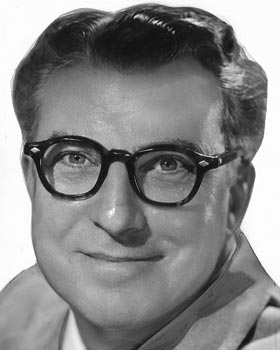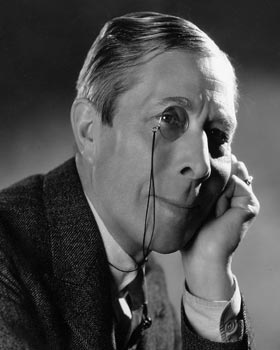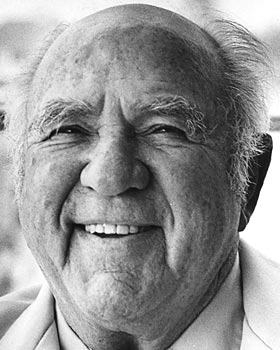John Nesbitt

Stars


John Nesbitt was once called television's top teller of tales by Los Angeles Times writer Walter Ames. He liked a story with heart for his Sunday "Telephone Time" episodes.
"Every day there are thousands of incidents that make talk," Nesbitt explained. "Yet only a few make good storytelling. That's why the search for a good story is long and hard. Every possible incident has has to be surveyed and researched to make sure of the facts."
Nesbitt actually began gathering material at the age of 14, when he started traveling on his own, hitchhiking and working at odd jobs on his trips.
Nesbitt attributed his distinctive voice to having to talk into his father's deaf ear. His place at the dinner table was next to that deaf ear and in order to avoid his father's outbursts when he couldn't hear what was being said, John took care to speak with the clearest possible enunciation.
"When I auditioned at a San Francisco radio station for the spot of a news announcer, I discovered that my voice range was absolutely perfect for the type of microphone that was being used then. Later a sponsor wanted to buy something different for six quarter-hours a week so I worked up famous headlines from the past. The show clicked and from it came radio's 'Passing Parade.'"
MGM invited Nesbitt to Hollywood to do a couple of short subjects based on his programs. The association lasted 10 years. He sold his interest in the series to the studio in 1950 and retired.
Hal Roach wouldn't let him rest, however, and coaxed him into television with an entirely new set of stories. Nesbitt says he is able to use some material on television that he couldn't tell on radio or in the movies because of the limitation of these mediums.
Nesbitt also recalled a brief stay on the stage with George Arliss in "The Merchant of Venice." He said the noted actor cured him of stage fright with the pronouncement, "We'll not be looking for any excellence from you tonight."
Related stars
|
|


Three thoughts about John Nesbitt
Share a thought about John Nesbitt